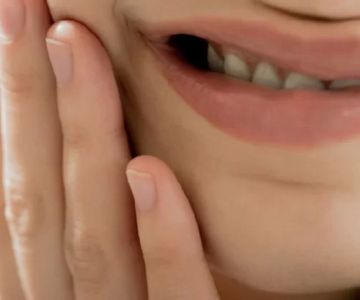Understanding the Role of a Dental Hygienist in Assessing Oral Diseases
Dental hygienists play a crucial role in the prevention and early detection of oral diseases. They are trained professionals who work alongside dentists to provide preventive care and assess the overall health of patients' mouths. A hygienist’s job goes beyond routine teeth cleaning; they also help identify early signs of oral diseases, which could otherwise lead to serious dental conditions if left untreated. This article will delve into how a hygienist can assess oral diseases, focusing on the skills, tools, and techniques used in this process.
1. The Importance of Early Detection of Oral Diseases
Early detection of oral diseases, such as gum disease or cavities, is essential to prevent more severe conditions like tooth loss or systemic health issues. A dental hygienist's primary task is to notice the first signs of problems before they become bigger issues. This early intervention can save patients from discomfort, expensive treatments, and long-term health complications. Understanding the importance of early detection emphasizes the critical role hygienists play in maintaining optimal oral health.
2. Comprehensive Oral Health Assessments by Hygienists
Hygienists begin their assessment by thoroughly examining the patient’s mouth. This includes looking for signs of gum disease, cavities, oral cancers, and other abnormalities. They typically use a periodontal probe to measure the depth of gum pockets and assess the health of the gums. The hygienist will also check for bleeding, redness, or swelling around the gums, which are signs of gingivitis or periodontitis. This comprehensive assessment allows the hygienist to identify oral health issues early on and work with the dentist to create a treatment plan.
3. Utilizing X-Rays for Oral Disease Diagnosis
Another tool in a hygienist’s arsenal is the use of X-rays. While hygienists themselves cannot diagnose diseases, they play a vital role in capturing and analyzing X-rays to detect hidden dental problems such as cavities between teeth or bone loss caused by gum disease. These images allow the dentist to make a precise diagnosis and determine the best course of treatment for any issues the hygienist has flagged during the physical exam.
4. Hygienist's Role in Educating Patients on Oral Diseases
Beyond identifying oral diseases, hygienists also have the responsibility to educate patients about their findings and the steps they can take to improve or maintain oral health. If a hygienist notices early signs of gum disease, they will explain the importance of proper brushing, flossing, and possibly suggest further treatments such as deep cleaning or professional scaling. This preventive care education is vital for reducing the risk of future oral diseases and promoting lifelong dental health.
5. Specific Diseases Dental Hygienists Screen For
Hygienists are trained to screen for a variety of oral diseases. Some common ones they check for include:
- Gingivitis and Periodontitis: These gum diseases are common in adults and often result from poor oral hygiene. Symptoms include swollen gums, bleeding, and bad breath.
- Tooth Decay: Cavities can develop on the surface of teeth and are often caught by the hygienist through visual inspection or X-rays.
- Oral Cancer: While not as common, oral cancer can be deadly if not detected early. Hygienists are trained to look for lumps, sores, and other abnormalities in the mouth and throat.
- Temporomandibular Joint Disorders (TMD): The hygienist may notice symptoms of TMD such as jaw pain or difficulty opening the mouth, which could indicate a need for further evaluation by a dentist.
6. Hygienist's Assessment Tools and Techniques
Several tools are used during the assessment process. The periodontal probe measures the depth of gum pockets, indicating the severity of any gum disease. The scaler is used to remove plaque and tartar from the teeth, and the explorer is another tool that helps detect cavities. Hygienists may also use diagnostic devices like intraoral cameras, which allow them to take detailed images of a patient's mouth for further examination.
7. Working with Dentists to Provide Comprehensive Care
While hygienists are highly skilled in assessing and preventing oral diseases, they do not diagnose conditions or prescribe treatments. Instead, they work closely with dentists, who rely on the hygienists’ findings to make final diagnoses and treatment decisions. This collaborative approach ensures that patients receive the most accurate care possible, allowing for better outcomes in the treatment of oral diseases.
Conclusion: The Crucial Role of Hygienists in Oral Health
Dental hygienists play an invaluable role in assessing oral diseases. Their ability to identify early signs of conditions like gum disease, cavities, and even oral cancer can significantly impact a patient’s health outcomes. By using their skills, tools, and knowledge, hygienists help prevent further damage to a patient's oral health and educate them on maintaining good dental hygiene. If you want to learn more about oral health and the vital role hygienists play in disease prevention, consider visiting [Dentistry Toothtruth] for expert advice and services.



 Westgate Dental Arts
Westgate Dental Arts Coventry Family Dental
Coventry Family Dental Familia Dental
Familia Dental Dr. Daniel S. Fife, DDS
Dr. Daniel S. Fife, DDS Dentistry At Suburban Square: Michael I. Wollock, DMD
Dentistry At Suburban Square: Michael I. Wollock, DMD Comfort Care Dental
Comfort Care Dental The Importance of Oral Health Education During Pregnancy for a Healthy Pregnancy
The Importance of Oral Health Education During Pregnancy for a Healthy Pregnancy Why Skipping Dental Checkups Can Lead to Bigger Oral Health Problems
Why Skipping Dental Checkups Can Lead to Bigger Oral Health Problems Best Tips for Brushing Your Teeth Properly for Healthy Gums: Essential Techniques for Oral Health
Best Tips for Brushing Your Teeth Properly for Healthy Gums: Essential Techniques for Oral Health Advantages of Porcelain Dental Restorations
Advantages of Porcelain Dental Restorations How Can Diabetes Cause Tooth and Gum Problems? Preventing and Managing Oral Health Issues
How Can Diabetes Cause Tooth and Gum Problems? Preventing and Managing Oral Health Issues Healthy Habits for Promoting Good Oral Health and Hygiene: Tips for a Healthy Smile
Healthy Habits for Promoting Good Oral Health and Hygiene: Tips for a Healthy Smile